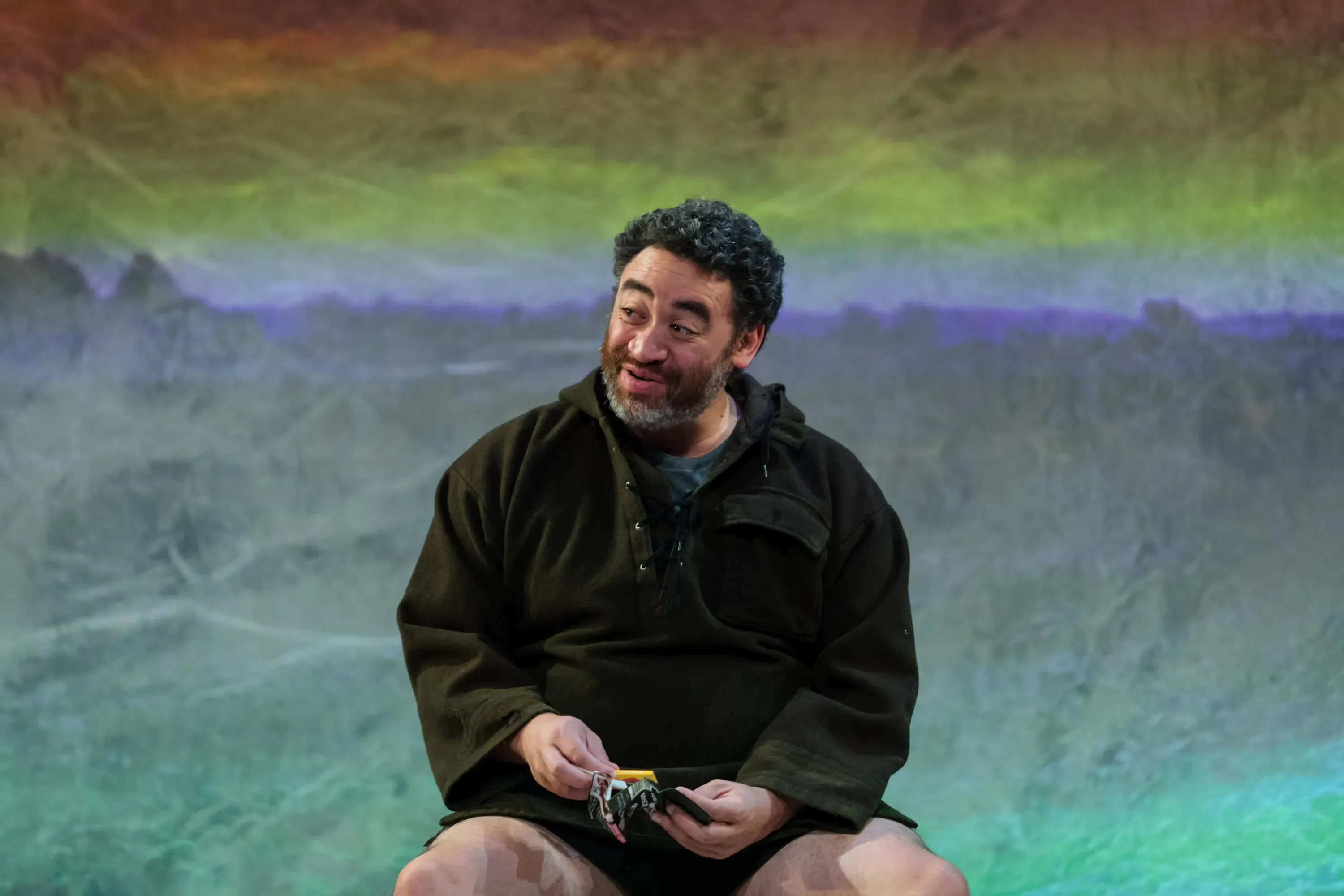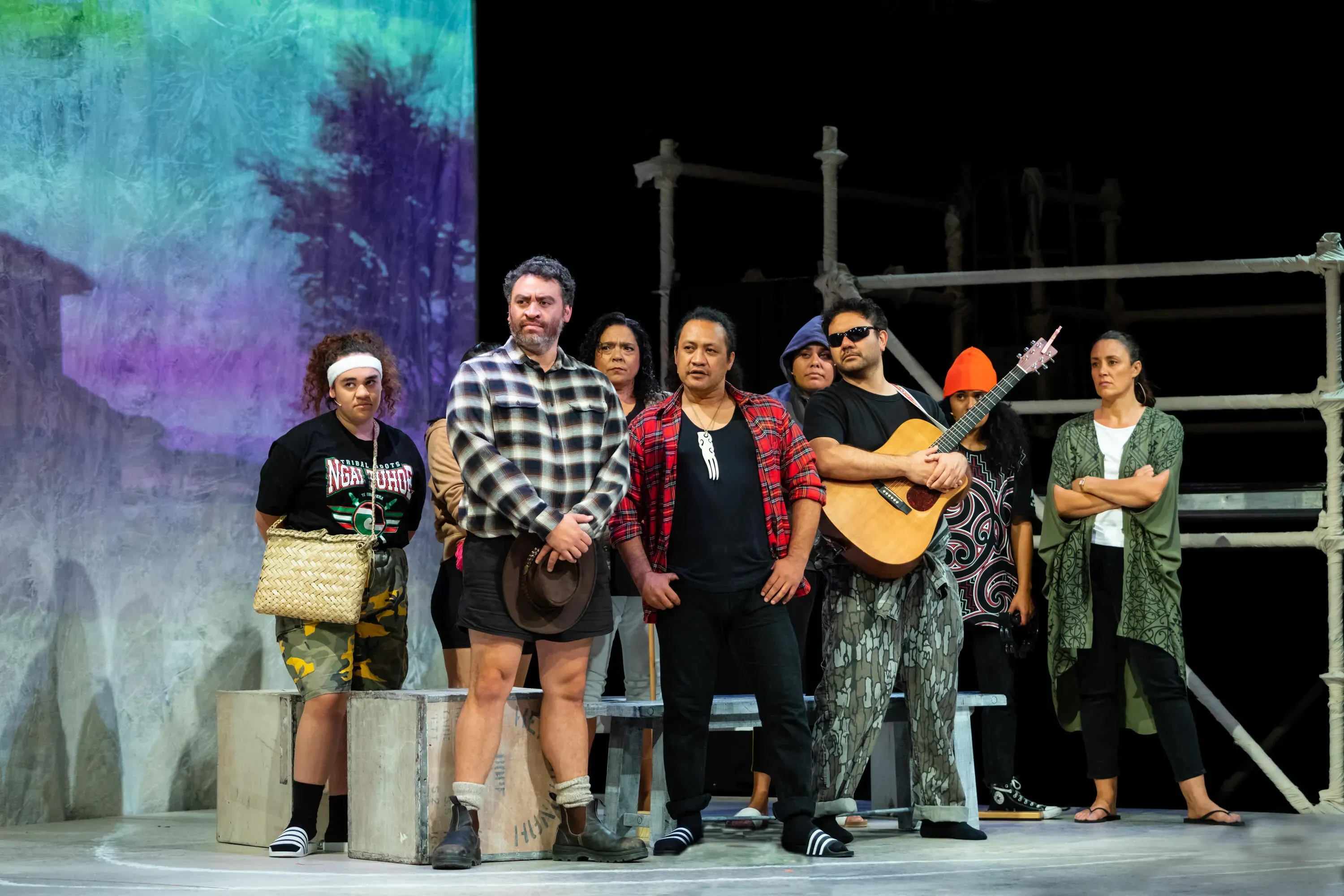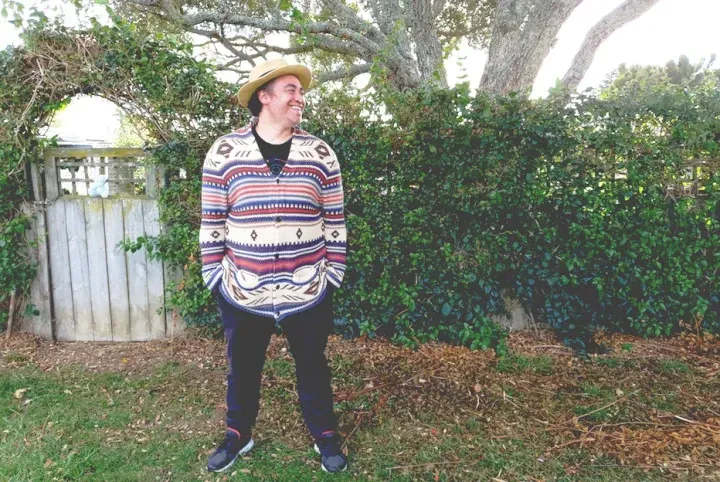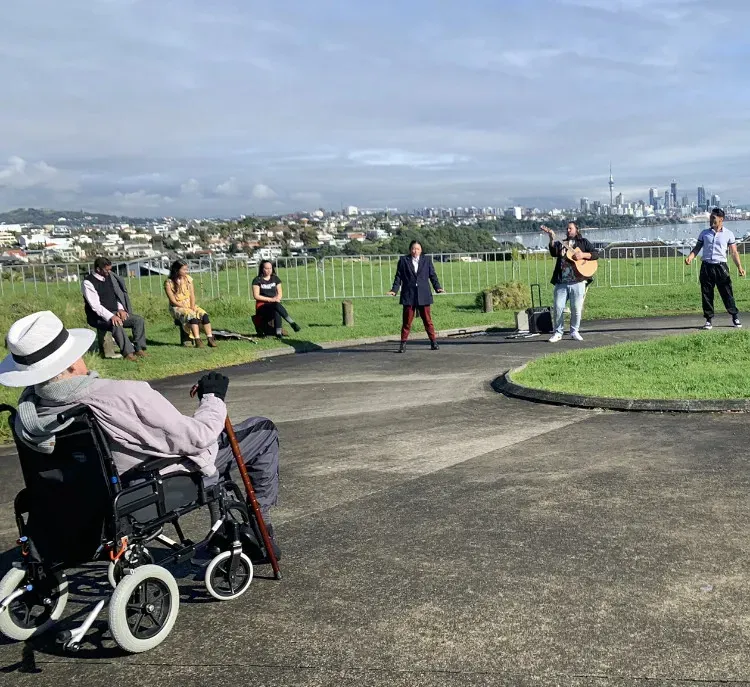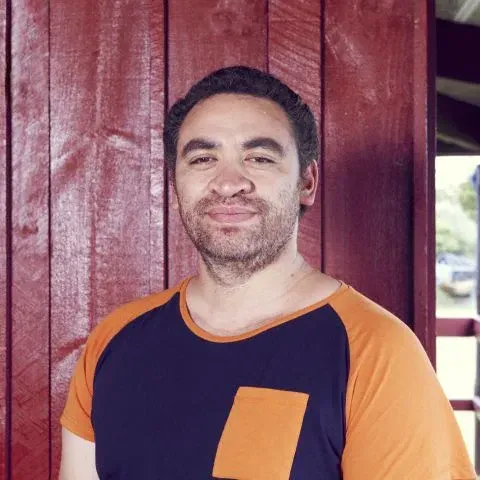Fight Against Systemic Racism Not Over
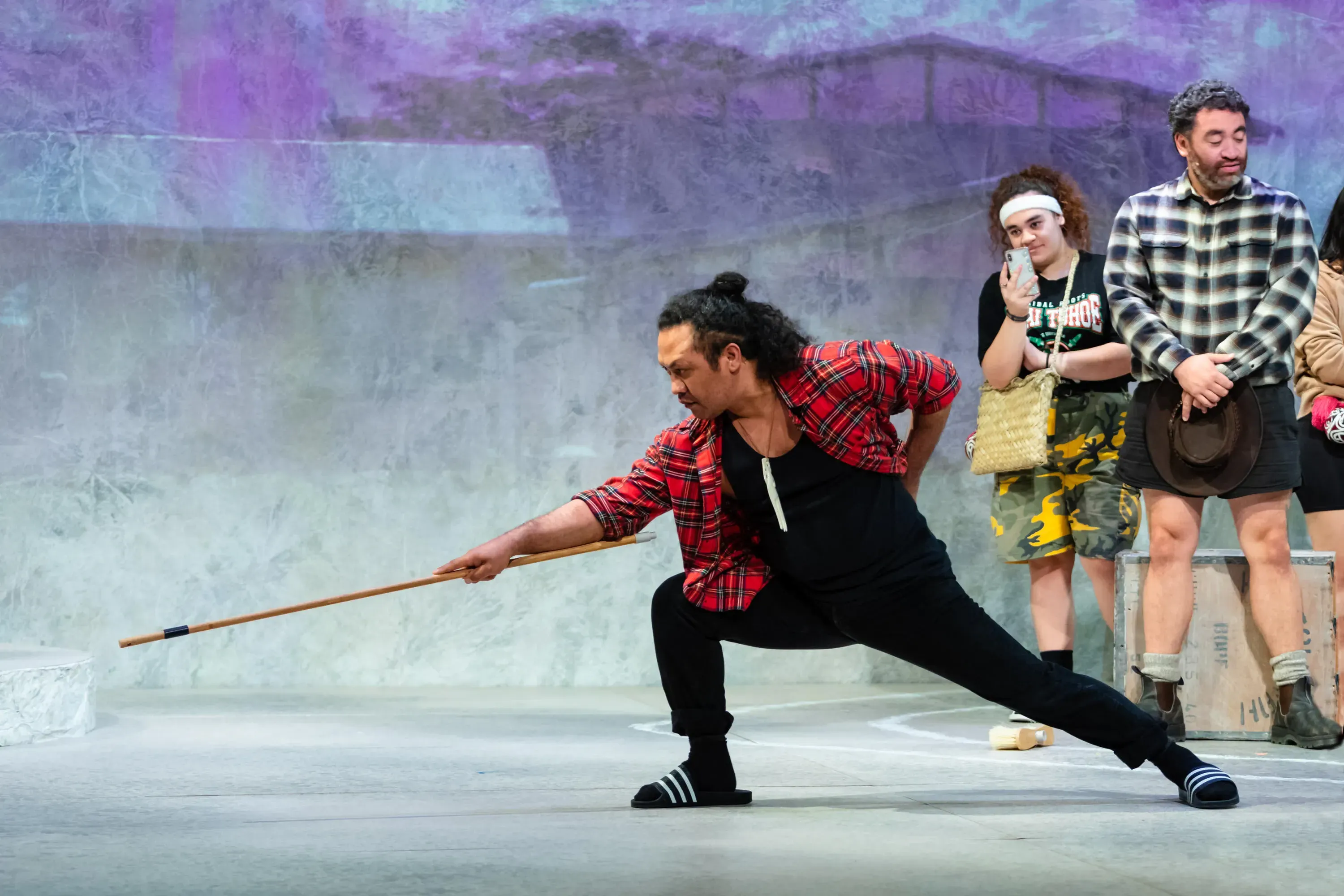
This story was originally published by our friends at Te Taumata Toi-a-Iwi.
For close to twenty years, Tainui Tukiwaho has been a prolific maker in Aotearoa’s creative arts sector, perhaps most notably in the world of theatre where he wears many hats: actor, writer, producer, director.
But as of late, the hat he enjoys spending most of his time wearing is as Te Taha Wairua at Te Pou - Auckland’s Māori home of theatre. Tukiwaho, a graduate of Te Taumata Toi-a-Iwi’s ART Venture programme, founded Te Pou alongside a collective of other Māori theatre-makers back in April 2015 and it is his leadership that has seen Te Pou through the past five years and supported multiple Māori artists to make their mark on the national theatre scene.
‘Te Taha Wairua’ loosely translates as ‘the spiritual side’, and in this role, which Tukiwaho (Te Arawa/Tuhoe) acknowledges is possible thanks to the support of Creative New Zealand, his purpose is to “focus on the whānau who engage with Te Pou, and to make sure they are healthy and safe within the mahi that they do.” As part of his job, Tukiwaho is also able to use his experience successfully gaining arts funding to support and assist other emerging, and often established, artists to write convincing funding proposals.
There for the community
Though he is aware that the current pandemic has affected many people in negative ways and cautious not to sound too flippant, Tukiwaho admits that over the period of New Zealand’s first COVID-19 lockdown Te Pou really flourished.
“The kaupapa that we work under is to do our best to support our community and so when COVID hit and there were artists floating, we were in a prime position to catch as many as were interested in landing with Te Pou.
“The result was that we assisted artists in receiving over $300,000 from Creative New Zealand through the Arts Continuity Grant and the Emergency Relief Grant. That came purely from the fact that there were artists floating and they had lost some of their livelihood, they didn’t know where to go. So we caught them.”
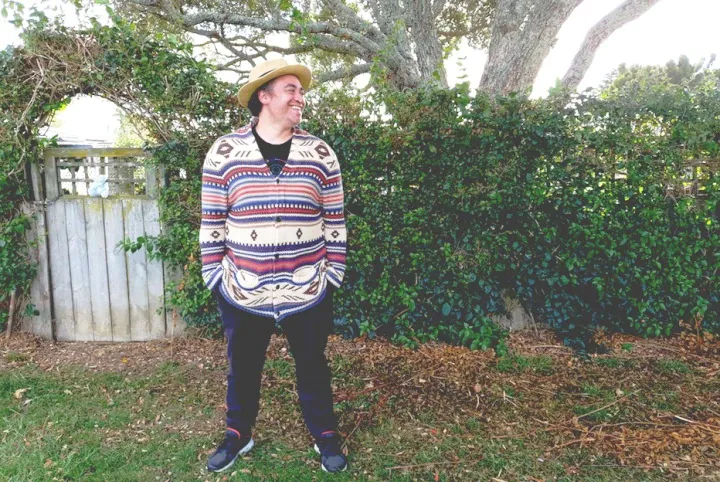
Tainui Tukiwaho soaking in the concept of Te Pou’s Front Yard Festival.
Perhaps Te Pou’s biggest lockdown success was the Front Yard Festival series; a socially distanced tour of Tāmaki Makaurau held in the front yards of vulnerable whānau members, kaumātua and kuia. As soon as level 3 was announced, Tukiwaho and fellow Māori actor/director Jarod Rawiri got to work directing two groups of performers in stunning ten minute musical theatre performances. When the tour of Auckland ended, the actors then took the show back to their hometowns where they were able to share the joy with their loved ones.
“Front yard Festival was amazing,” Tukiwaho smiles, “but what I thought was the most interesting part of it was that it was the first show I have ever made where the actors loved it so much that they went out and got their own funding to continue the kaupapa around the country.
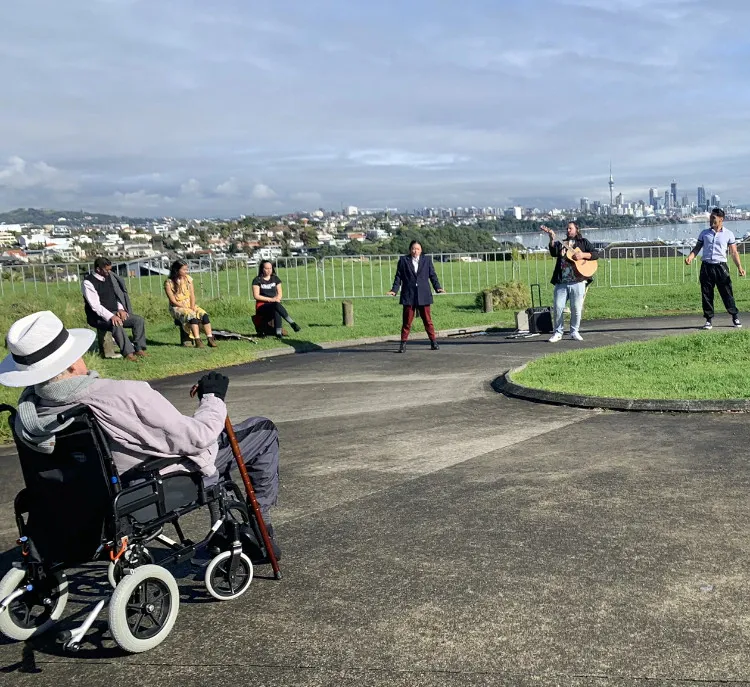
The Front Yard Festival troupe performing for Joe Hawke and the kaumatua village at Orākai Marae. Photo: Annette Morehu.
“That is what I find the best thing about it; that the performers didn’t want to let it go because they saw the good that they were doing for our nannies and koros and they desperately wanted to take that goodness back home. As they were doing the show they asked, ‘Is this finishing next week?’ And we said, ‘Yeah, but CNZ has this funding.’ And so Te Pou gifted the show as well as the resources that we bought for the show and Acushla (Tara Kupe) produced it. She got $48,000 - the first show she ever produced - and they went off on the road. That’s huge!
The show made its way to places like Palmerston North and New Plymouth - but Tukiwaho remained connected to the work. “We had nightly debriefs and even when the days were hard, everyone found one nan or one koro who made the day worth it.”
Work to be done
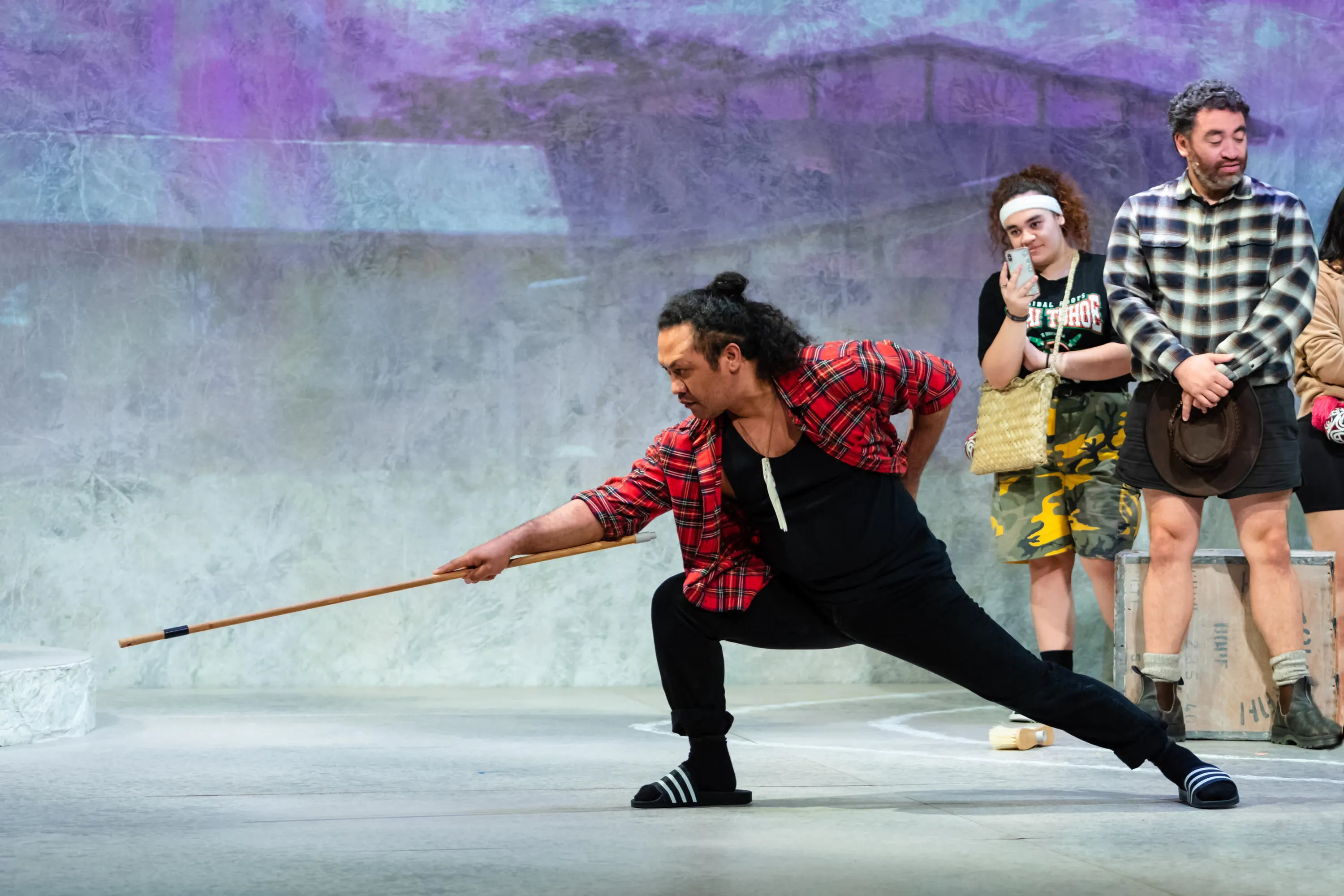
Te Rēhia Theatre's co-production of Black Ties was a hit at this year’s Auckland Arts Festival.
But Tukiwaho says that although things are working in their favour right now, it doesn’t mean there isn’t still work to do when it comes to systemic racism within the current arts funding system.
“You know, a kaupapa Māori theatre is thriving in our current climate but in saying that (we don’t get) as much money as Pākeha companies who have less responsibility than we do.
“When I used to run Taki Rua, our mandate was to lead Māori theatre throughout the country - this was ten years ago - and we were getting a quarter of what Pākeha companies were getting to do their single art form in one city. Taki Rua’s job was to service a whole country with a quarter of that money and still Taki Rua gets far less money than they deserve for what is expected of them.”
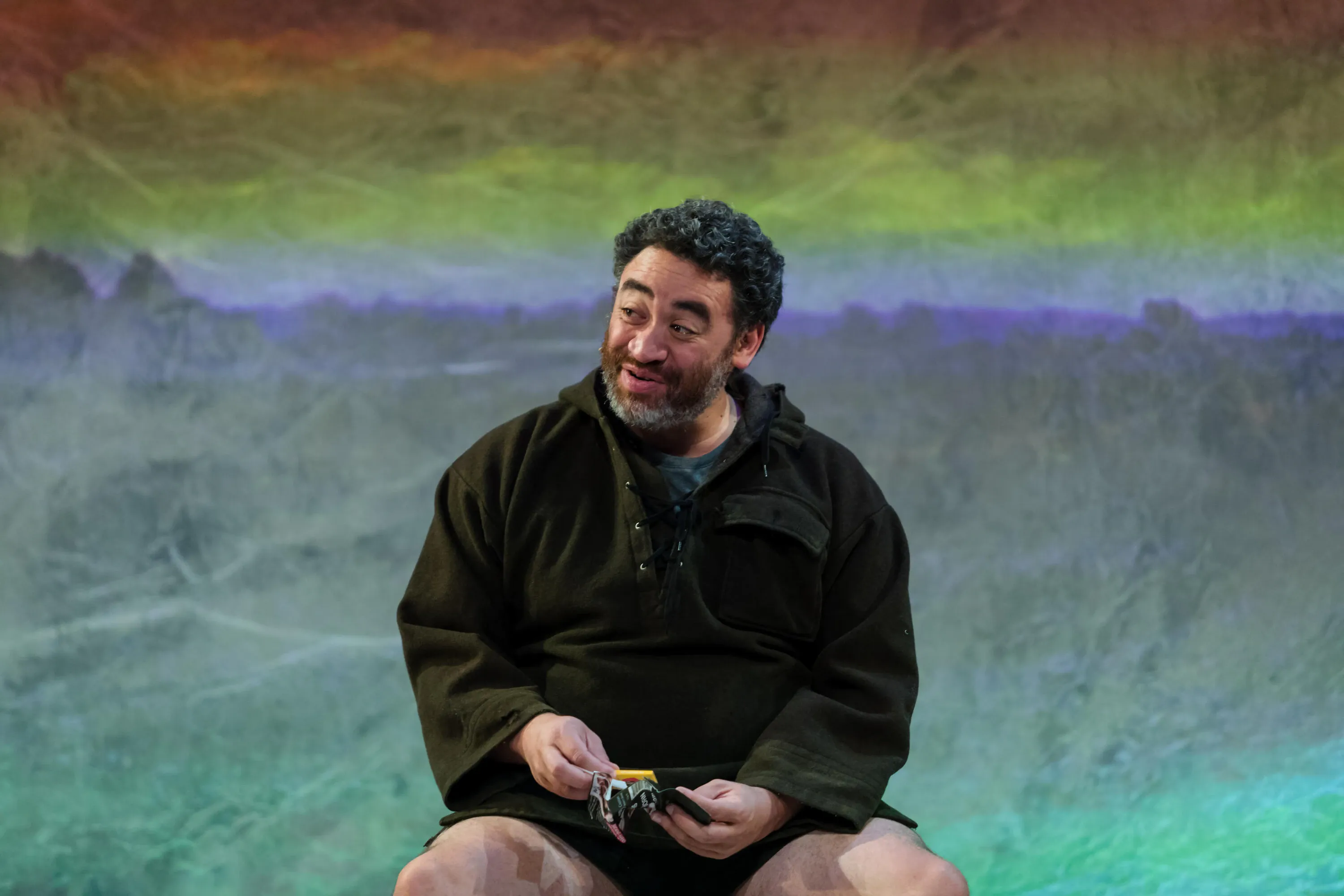
Tainui Tukiwaho in action in Black Ties.
In spite of this, Tukiwaho thinks Māori theatre in 2020 is in a good place and he believes change is currently happening within Pākeha theatre.
“I spend a lot of my time with other Māori theatre leaders who I really respect, either on Zoom or just hanging out in person; Tama Waipara, Hone Kouka, Miria George, Dolina Wehipeihana, Tanea Heke, Amber Curreen. So my perspective of Māori theatre is that it’s in a really good place because it’s in really good hands.
“But what is changing is Pākeha theatre, that’s the shift that’s happening, and that’s the shift that needs to happen. But I don’t think it is happening in the right way.”
While he believes change is good, Tukiwaho sounds a word of caution.
“Māori need to beware of Pākeha offering up small changes in the guise of progress. Because as long as we keep going, ‘Man, isn’t it great that Pākeha venue did a pōwhiri?’ and if we accept those small changes, it continues to deny us self determination. I’m not belittling anyone who helped them - because that was me. But it isn’t progress, it’s a change. Progress is when the change is for Māori, and not in the benefit of Pākeha. And we’re not there yet.
“I keep reading a lot of my Pākeha mates, who are leaders in their industries and who I love and care for dearly, saying things like, ‘What can I do? How can I change things? I want to do something!’. I sit there and think, ‘No you don’t because you know what to do. There are things you can do and you just don’t want to do that one.’
“A real simple example is that I honestly think if all of the Pākeha companies gave their money back to Creative New Zealand and said, ‘Stop! You can’t give any more money out until you do it balanced’, then the systemic racism that sits within our funding would stop. And as soon as they all stand up together and say, ‘I’ve had enough!’, our funders will have to do something about it. Which is why it frustrates me when they say, ‘What can I do?’ You know what you can do, it’s just a stink thing to do because it’s only in benefit of us.
“But in my opinion, that’s what progress looks like.’
Due to the COVID-19 alert level, Te Pou will be holding their sixth annual Kōanga Festival, from 2-27 September online; with new works from emerging and established writers and performers. For details, click here.
